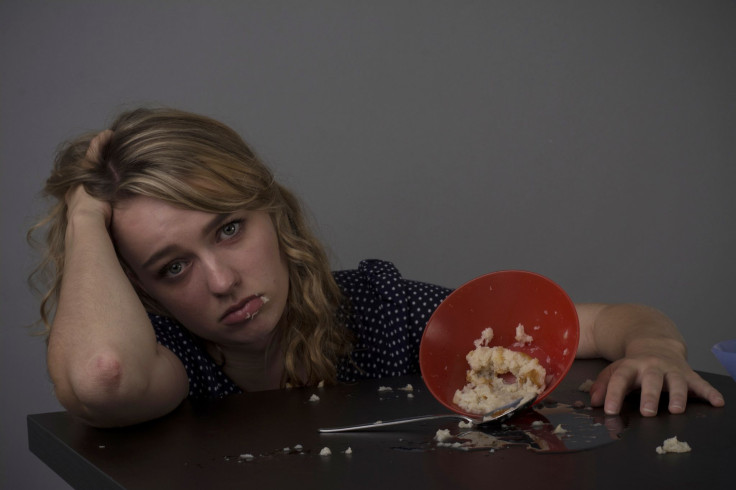Binge Eating Drug In Clinical Trials: Could Vyvanse, The ADHD Drug, Be Repurposed For This Eating Disorder?

With the 2013 publication of the Diagnostic and Statistical Manual of Mental Disorders-V, mental health professionals recognized Binge Eating Disorder (BED) as a formal diagnosis for the first time. So far, though, no medications have been approved for this disorder. In a clinical trial, researchers found Vyvanse (lisdexamfetamine dimesylate), a drug already approved to treat attention-deficit/hyperactivity disorder, was effective in decreasing patients’ number of episodes of binge-eating compared with placebo.
“These findings provide substantial preliminary evidence that lisdexamfetamine may be effective for treatment of moderate to severe BED,” wrote the authors in their published research. “Further investigation of lisdexamfetamine in BED is ongoing.”
While psychiatrists may consider this a step forward, some laypeople undoubtedly will think treating a questionable disorder with a potentially habit-forming drug is a move in the wrong direction. Before you decide, why not consider some of the facts.
By definition, binge-eaters have frequent episodes of consuming massive amounts of food without trying to prevent weight gain afterward through the use of laxatives of self-induced vomiting. Binge-eaters often eat to the point of discomfort or alone, suggesting they feel shame or guilt and a loss of control. BED is associated with obesity and often depression, and as a result, binge-eating is predictive of metabolic syndrome and other health problems.
Side Effects
Vyvanse is a stimulant registered as a class 2 federally controlled substance because of its potential for abuse or dependence. While all drugs have side effects, the Food and Drug Administration lists sudden death, stroke, and heart attack in adults as well as new or worse bipolar illness in children, teenagers, and adults among the worst possible effects for those taking Vyvanse. That said, the drug has been shown to be effective in improving attention span and behavior.
To test Vyvanse as a treatment for BED, the researchers enlisted volunteers from 31 U.S. sites and conducted the clinical trial between May 2011 and January 2012. Participants in the study — 255 included in an efficacy test, 259 included in a safety test — received either a dosage of 30, 50, or 70 mg/day of Vyvanse or placebo. After a three-week ramp up period, participants maintained their dose (or placebo) for eight weeks, with the researchers tracking them along the way and following up for an average of a week after the last dose.
What did the researchers discover?
Overall, participants receiving either 50-mg/d or 70 mg/d decreased their total number of binge-eating episodes more so than participants receiving either 30 mg/d or placebo. This does not mean that patients taking placebo or the smallest dosage did not improve. In fact, one-fifth (21.3 percent) of the placebo patients stopped binge-eating for a four-week period. In comparison, half the participants who received 70-mg/day dose of Vyvanse achieved a similar four-week cessation, as did 42.2 percent of the participants receiving 50-mg/day. In conclusion, the researchers state they will continue to investigate the potential benefits of Vyvanse for treating BED.
And for those who are having trouble with binge-eating, this serves as your heads up that someday soon you may have access to a pharmaceutical treatment. At the same time, consider for a moment the amazing gains made by some of the placebo participants during the clinical trial for this drug. There’s always a choice… and it’s yours to make.
Source: McElroy SL, Hudson JI, Mitchell JE, et al. Efficacy and Safety of Lisdexamfetamine for Treatment of Adults With Moderate to Severe Binge-Eating Disorder A Randomized Clinical Trial. JAMA Psychology. 2015.
Published by Medicaldaily.com



























